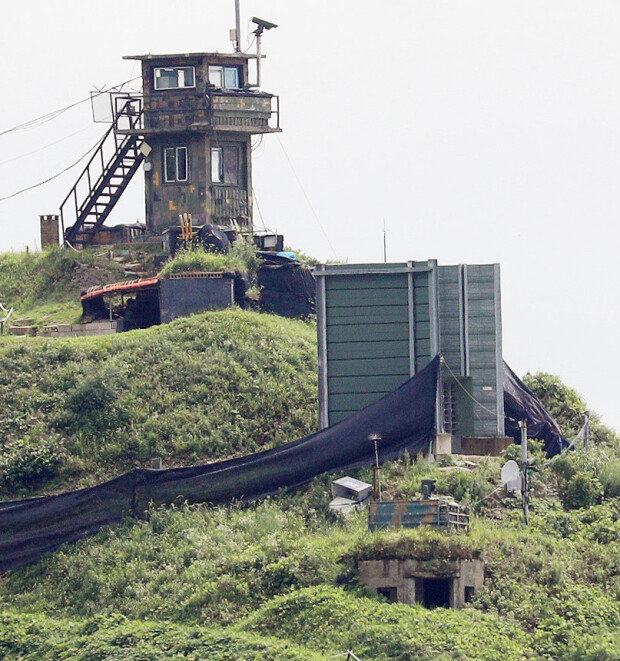South Korea ends loudspeaker broadcasts to ease tensions
South Korea ends loudspeaker broadcasts to ease tensions
Posted June. 12, 2025 07:34,
Updated June. 12, 2025 07:34

South Korea has ended its yearlong loudspeaker propaganda broadcasts along the border with North Korea in a gesture aimed at reducing tensions and restoring dialogue between the two Koreas. The decision fulfills one of President Lee Jae-myung’s key campaign promises to de-escalate inter-Korean hostilities.
According to ruling party officials and sources familiar with the matter, the South Korean military suspended the broadcasts in recent days following a directive from the presidential office. “The broadcasts were halted to rebuild trust in inter-Korean relations and promote peace on the Korean Peninsula, in line with the president’s campaign commitments,” a military spokesperson said.
The loudspeaker campaign, resumed in June 2024 under the previous Yoon Suk-yeol administration, marked the first use of such tactics in six years. The broadcasts were restarted in response to provocations from Pyongyang, including trash-filled balloon launches and North Korea’s withdrawal from the 2018 inter-Korean military accord. The messages featured commentary on South Korea’s economic achievements, criticism of the Kim family regime, and popular K-pop music, a psychological warfare tactic dating back decades.
Since taking office, the Lee administration has reviewed the timing and approach to suspending the broadcasts. The move was accompanied by efforts from the Ministry of Unification to quietly discourage civic groups from sending propaganda leaflets into North Korea, a practice previously tolerated on free speech grounds. Together, these actions reflect the administration’s more conciliatory stance and desire to ease cross-border tensions.
Contrary to expectations that the shift would be formalized through a National Security Council meeting after key diplomatic and security appointments, the decision was expedited. Officials cited ongoing disruption to residents in border areas, who have endured retaliatory noise pollution from the North, including industrial sounds and loudspeaker broadcasts, since South Korea resumed operations last year. North Korea has not launched additional trash-filled balloons since November 2024, another factor influencing Seoul’s decision.
The South Korean military operated 24 fixed and 16 mobile loudspeakers, broadcasting daily from 6 a.m. to 10 p.m. However, the mobile units were silenced earlier this year amid concerns over troop fatigue and prolonged operations. Plans to redeploy the mobile systems this spring, as part of a broader response to Pyongyang’s severing of all communications and exchanges under Kim Jong Un’s “two hostile states” policy, were also affected by the recent lull in North Korean military activity along the border.
Kyu-Jin Shin newjin@donga.com







